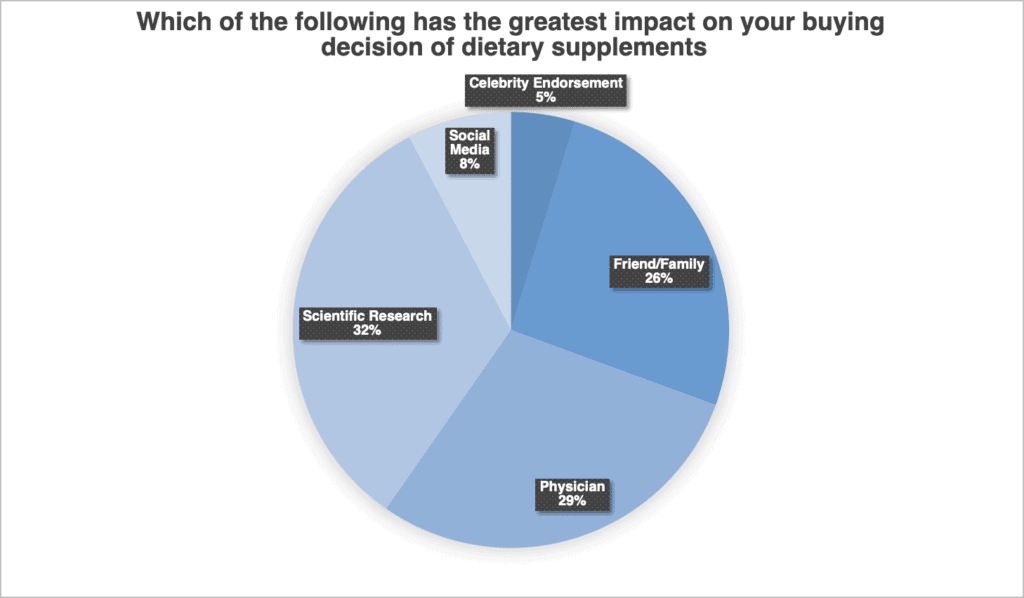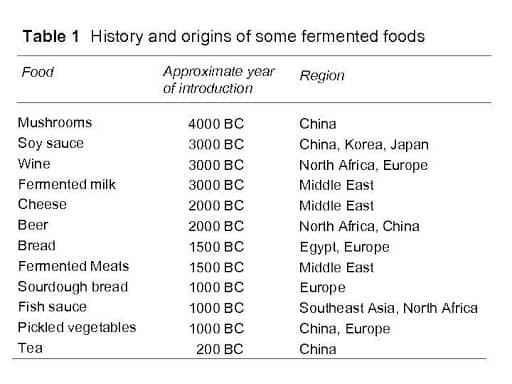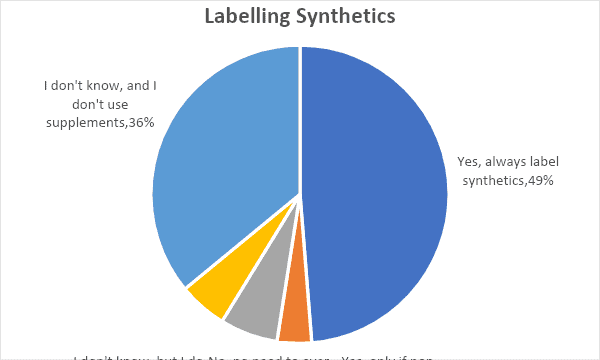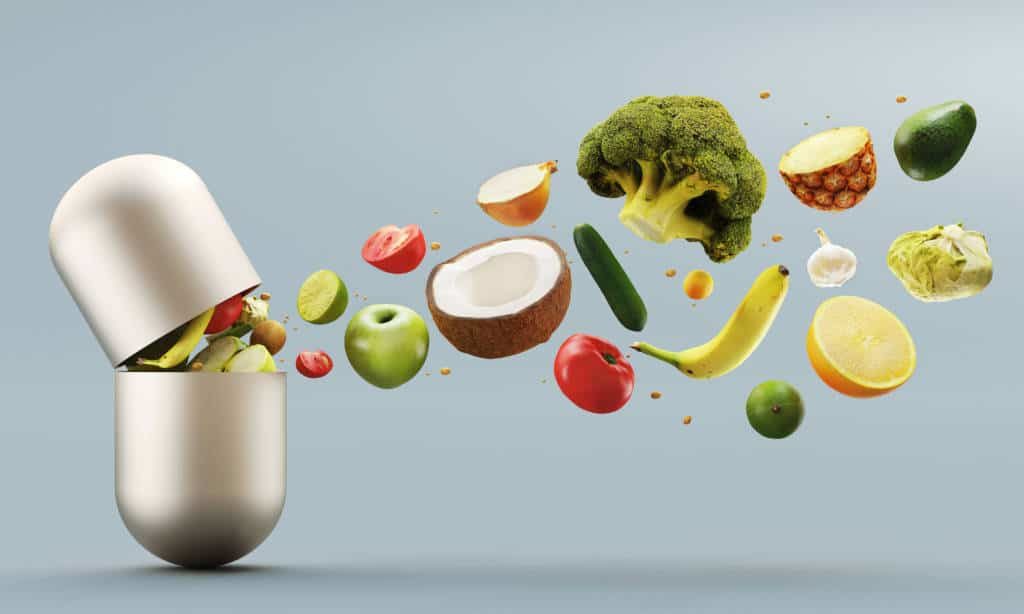Trust Transparency Center has determined through its research that there are five topics your organization should be exploring to ensure that the questions consumers are most likely to ask are in fact answered. These areas of information of interest to consumers are:
- Science
- History/Story
- Claims
- Origin
- Manufacturing Sources
Science
The brands you provide should be able to support their products with scientific data. While it is probably not possible to provide all of the scientific information to substantiate all products claims on a label, it is important to have the information available for reference. A December 2019 Trust Transparency Center survey of over 1,000 people in the U.S. indicated the greatest impact on the purchasing decision came from Scientific Research, followed closely by Physician recommendation and Friend/Family endorsement. Social Media and Celebrity Endorsement were of lesser importance:

History/ Story
Every ingredient has both a story and a history. Vitamin C is often credited as being the foundation of modern nutrition. In 1747, James Lind, a British naval surgeon, found 12 men from the HMS Salisbury who presented with the disease scurvy. Lind divided the 12 sailors into 6 pairs and provided different diets to each pair. Five pairs of sailors received vinegar, mustard and garlic purges, elixir of vitriol, and other possible remedies. The final pair was encouraged to eat citrus fruits of oranges and lemons. Only the pair who consumed the fruits recovered from the scurvy disease. However, Lind didn’t associate the cure with any component of the fruit. This experiment led Lind to publish the Treatise of the Scurvy in 1754. Lind stated his belief scurvy was a digestive disorder in which the sailors with scurvy were unable to sweat adequately. The lack of perspiration would accumulate in the body and become putrid. Lind wrote two more versions of the Treatise and never definitively did associate diet as the cause of the disease. The realization of the importance of vitamin C in the treatment of scurvy emerged over a century later.
Fermented foods have been part of functional nutrition for thousands of years. The History of Probiotics indicates the use of fermentation dates back thousands of years:
 A more recent accidental discovery is the immune health ingredient, Epicor®, originally manufactured by an animal feed supplement producer, Diamond V. In 1998, Diamond V’s employees who manufactured its yeast culture noticed that they were not using much sick time. This observation led to negotiations between the union representative for the workers and Diamond V management about combining unused sick leave with vacation time. Once Diamond V management looked into this claim, they confirmed that the factory workers had unusually low sick leave rates compared to the office workers. Further investigation with Diamond V's health insurance provider indicated actual health care claims per person were 40%-60% lower than other companies of similar size in the same region. Studies went on to indicate the immune cells of the factory workers were stronger than office worker counterparts who had not come in contact with the ingredient.
A more recent accidental discovery is the immune health ingredient, Epicor®, originally manufactured by an animal feed supplement producer, Diamond V. In 1998, Diamond V’s employees who manufactured its yeast culture noticed that they were not using much sick time. This observation led to negotiations between the union representative for the workers and Diamond V management about combining unused sick leave with vacation time. Once Diamond V management looked into this claim, they confirmed that the factory workers had unusually low sick leave rates compared to the office workers. Further investigation with Diamond V's health insurance provider indicated actual health care claims per person were 40%-60% lower than other companies of similar size in the same region. Studies went on to indicate the immune cells of the factory workers were stronger than office worker counterparts who had not come in contact with the ingredient. Each ingredient sold in your store has a history and a story that can be beneficial for your team to learn and share. Your customers are seeking advice and information from you, and knowing more about the ingredients you sell establishes your salespeople as respected authorities.
Claims
Just like the history/story of ingredients, every product has a benefit associated with it. Learning more about what each ingredient is proven to provide is an important asset in the process of establishing authority and expertise. Just knowing the claims associated with an ingredient is important, but beyond that skill exists an opportunity to provide reason and rationale supported by science. There are three types of claims that can be found on a product label, a health claim, nutrient content claim, and a structure/function claim. Ask the manufacturer to provide support for the claims made on their products. Use this information to provide a greater understanding of the product and any recommendation your staff might provide. It is important that everyone who discusses product offerings understands and imparts the important distinction, as defined by the FDA, that whatever the claim, dietary supplements cannot ever diagnose, treat, cure, mitigate or prevent a disease.
Origin / Testing
As consumers request more information about the products they purchase, there are reasonable and necessary information pieces that can be woven into the ingredient or product story. Information such as Country of Origin for both ingredients and manufacturing should be available to you. Place of manufacture can also be provided if asked. Test specifications and limits are also finding their way into consumer conversations. The Amazon Element brand routinely provides all of this information to its customers. Country of origin is important to many consumers but, importantly, the product’s quality, not its country of origin, must be the focus for response as a product can be harmful or ineffective no matter where it is made if the ingredients or products are not tested. Brands should be able to explain both their specifications and test processes for their products.
Manufacturing Process
A recent survey conducted by Trust Transparency Center of over 1,000 respondents indicates that a majority of consumers believe they should be informed if a product is synthetic:
 Products produced through fermentation and utilizing GMO’s are also areas of concern for consumers.
Products produced through fermentation and utilizing GMO’s are also areas of concern for consumers. The more information you have to share to support the products you carry, the more trust and authority you can provide your customers.
Here is a list of questions you should be asking your brand suppliers about their products:
- What scientific substantiation supports your product claims?
- What is the history behind your company/ingredients used?
- What substantiated claims can be made to support the products we sell?
- What is the country of origin and who is the manufacturer for the products and ingredients within your brand?
- Are any of your ingredients synthetic and not labeled as such?









